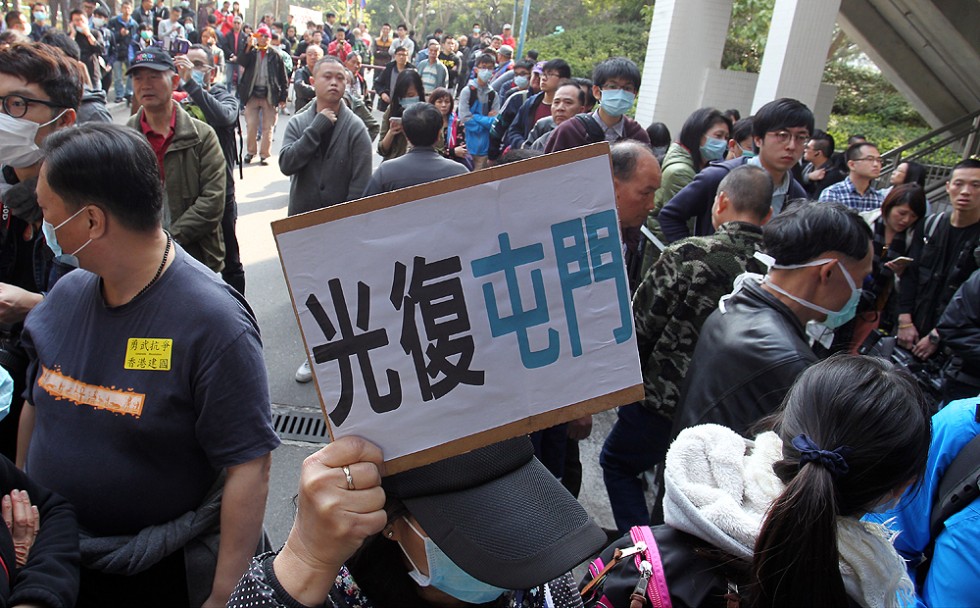More arrests as Hong Kong continues crackdown on parallel goods trading
PUBLISHED : Wednesday, 18 February, 2015, 6:58pm
UPDATED : Wednesday, 18 February, 2015, 7:00pm
Danny Lee [email protected]

Tuen Mun residents organise a rally against parallel trading. Photo: Dickson Lee
Eight mainland visitors suspected of parallel goods trading have been arrested in the last two days, the Immigration Department announced on Wednesday.
Four men and four women aged between 30 and 57 were arrested for breaching their condition of stay by being involved in suspected parallel goods trading in areas around Man Tin Cheung Park in Lok Ma Chau, and San Wan Road and Ka Fu Close in Sheung Shui. The arrests were carried out on February 16 and 17.
The goods seized included milk powder, food, red wine, skin-care products and electronic products.
The raid coincides with the traditional Lunar New Year surge of cross-border visitors entering Hong Kong.
Parallel trading in most goods is not illegal in Hong Kong, so the action against the traders had been taken under immigration laws, on the grounds that they suspected traders had violated their conditions of stay.
Some 1,951 mainlanders and 14 Hong Kong residents suspected of parallel goods trading have been arrested in a series of raids codenamed “Windsand” since September 2012 under a joint-police and immigration initiative.
“Visitors are not allowed to take up employment in Hong Kong, whether paid or unpaid, without the permission of the Director of Immigration,” an Immigration Department spokesman said.
“Aiders and abettors are also liable to prosecution and penalties. The Immigration Department will continue to take enforcement action … against the offences concerned.”
Offenders are liable to prosecution and upon conviction may face a maximum fine of HK$50,000 and up to two years’ imprisonment.
The arrests come amid anti-parallel goods protests in Tuen Muen and Sha Tin in the New Territories over the past two weeks, as residents grow tired of the soaring numbers of traders.
As more mainland tourists buy products in local shops, particularly in the northern New Territories, residents have complained about being unable to buy basic necessities such as infant milk formula.
Traders have been accused of clogging up the MTR network, hogging daily necessities and fundamentally altering the retail landscape of large parts of Hong Kong, with traditional stores priced out by those catering to the needs of the traders.
According to Shenzhen customs, more than 20,000 parallel traders cross the border between Shenzhen and Hong Kong every day, taking advantage of the tax gap between Hong Kong and mainland China, which make many goods cheaper in the city.
